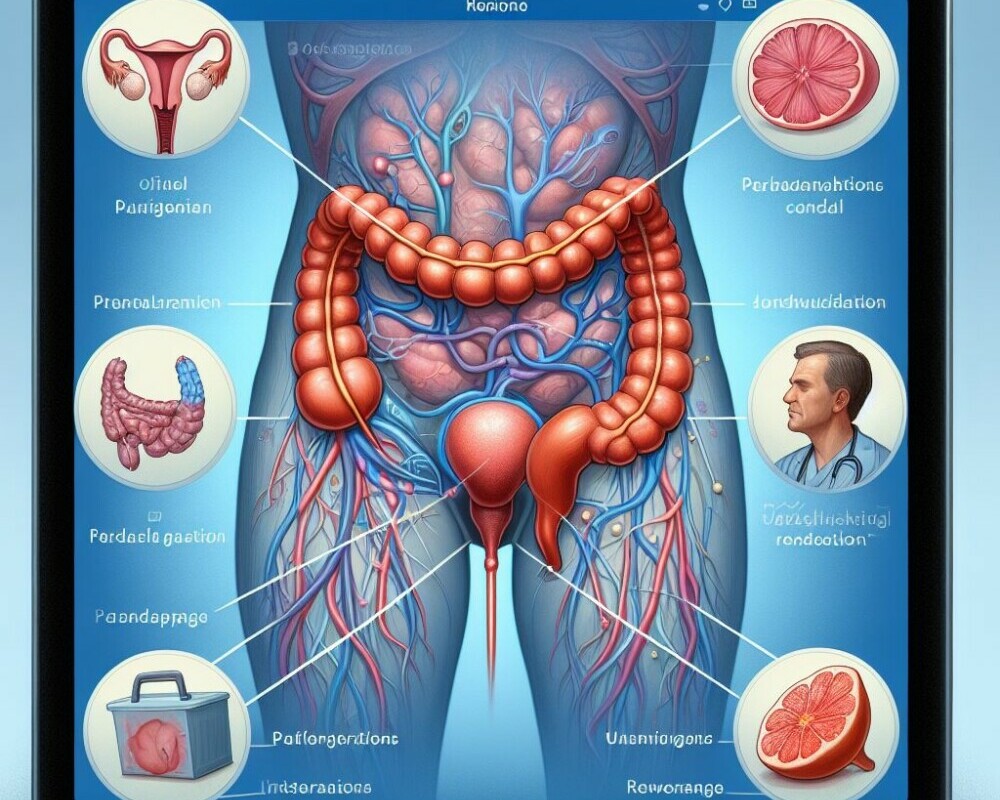If you or someone you know is managing multiple sclerosis (MS), you’re going to find out about the common yet often overlooked challenge of bladder and bowel dysfunction. This isn’t just a clinical symptom; it’s a daily reality that can significantly affect a person’s life. In this section, I’ll help you understand the WHY and the WHAT behind these symptoms.
Personal Experience
 Personal Insights: Navigating MS Symptoms from a First-Hand Perspective by Alex
Personal Insights: Navigating MS Symptoms from a First-Hand Perspective by Alex
“Having lived with Multiple Sclerosis (MS) for the past five years, I’ve made it a point to become well-versed in all aspects of this condition, empowering myself to have a hand in influencing its trajectory. While the journey hasn’t been without its challenges, the unwavering support of those around me has emboldened me to navigate this path with courage. Through this process, I’ve become intimately acquainted with MRI scans, meticulously tracking the whereabouts of brain lesions, a hallmark of MS.
Recently, I encountered a health issue that prompted me to seek medical attention. Experiencing abdominal discomfort accompanied by bloating and diffuse pain, I found myself unable to alleviate the symptoms with herbal remedies or conventional methods. Seeking guidance, I consulted a specialist in bowel and bladder disorders. Upon learning of my MS diagnosis, the doctor promptly attributed my symptoms to the condition, asserting, “Yes, that’s it. It’s a common symptom and problem for people with MS.” Despite my insistence
that I had no lesions affecting the nerves responsible for bowel and bladder function and that I diligently monitored these areas, my concerns fell on deaf ears.
Reluctantly, I acquiesced to the prescribed therapy aimed at addressing urinary retention, a
potential consequence of untreated bladder issues in MS patients. However, unsettled by the dismissal of my insights, I sought a second opinion from my neurologist. Following a thorough evaluation, my neurologist recommended a different course of treatment. Subsequent testing, including a urine culture, revealed the presence of bacteria—a consequence of prolonged urinary retention. Although the prescribed antibiotic regimen initially showed sluggish progress, a supplement of wild oregano oil proved remarkably effective in eradicating the
bacterial infection, restoring balance to my system.
Reflecting on this experience, I’m reminded of the importance of advocating for oneself
and maintaining vigilance over one’s health. While medical professionals possess invaluable expertise, they are not infallible, and misdiagnoses can occur. It serves as a poignant reminder that MS patients, like anyone else, are susceptible to unrelated health concerns. By remaining proactive and informed, we empower ourselves to navigate the complexities of our health journey with resilience and determination.”
First off, these problems tend to occur because MS can cause lesions in the areas of the brain and spinal cord that control the bladder and bowels. This can disrupt the nerve signals that are vital for their proper function.
You’re going to come across various types of dysfunction. For the bladder, there’s urgency, frequency, hesitancy, and even incontinence. When it comes to bowel issues, individuals might experience constipation or bowel incontinence.
The impact of these symptoms extends beyond physical discomfort; they can have emotional and social repercussions, which is why it’s so important to approach this topic with compassion and understanding.
In my opinion, the first step in managing these symptoms is a comprehensive understanding, followed by a personalized management plan, which we’ll dive into next.
Personalized Management Strategies for MS-Related Bladder Issues
 In my opinion, when it comes to managing MS-related bladder issues, there’s no one-size-fits-all solution. Every individual’s experience is unique, and that’s why a personalized care plan is crucial. Let’s explore some of the strategies that can make a significant difference in managing these challenges.
In my opinion, when it comes to managing MS-related bladder issues, there’s no one-size-fits-all solution. Every individual’s experience is unique, and that’s why a personalized care plan is crucial. Let’s explore some of the strategies that can make a significant difference in managing these challenges.
Medical treatments often serve as the front line of defence. Depending on the type of bladder dysfunction, medications can help relax the bladder or improve its contractility. Intermittent catheterization, Botox injections, and nerve stimulation therapies are also options that might be discussed with a healthcare provider.
Lifestyle modifications are another key component. Regularly scheduling bathroom breaks, limiting fluid intake at certain times, and avoiding caffeine and alcohol can help control symptoms. Pelvic floor exercises can strengthen the muscles involved in urinary control, which might be a game-changer for some people.
And don’t forget about technology and assistive devices! There’s a lot of opportunity in new gadgets designed to help monitor bladder health and manage incontinence discreetly. Whether it’s wearable devices that alert you to your bladder’s fullness or mobile apps that track your bathroom habits, they can empower you to maintain greater independence.
Your first attempt at managing bladder problems doesn’t need to be your last. You can always adjust your approach down the road as you find out what works best for you. This isn’t just about controlling symptoms; it’s also about enhancing your quality of life and maintaining your dignity.
Navigating Bowel Dysfunction with Dignity: Tips and Techniques
 If you’re facing bowel dysfunction due to MS, you’re not alone. This challenge affects many individuals, but there are ways to manage it effectively and with grace.
If you’re facing bowel dysfunction due to MS, you’re not alone. This challenge affects many individuals, but there are ways to manage it effectively and with grace.
A healthy diet is often the cornerstone for managing bowel issues. Fibre-rich foods, plenty of fluids, and a consistent meal schedule can promote regularity and reduce discomfort. Let’s talk about which foods might become your new best friends and which ones you might want to break up with.
In my opinion, scheduled toileting and bowel training can make a huge difference. It’s a proactive approach where you set specific times to try to have a bowel movement. This helps train your body and can significantly reduce the risk of accidents.
Don’t worry too much about becoming dependent on laxatives right off the bat. There are medications and supplements that can help with bowel management, but these should be discussed with your doctor. They’ll take into account your specific needs and what’s safe for you.
It’s also crucial to mention the role of support systems and professional guidance. Whether it’s a family member, a support group, or a healthcare provider, surrounding yourself with understanding people can really ease the burden. They can offer practical advice, moral support, and sometimes just a listening ear when you need it.
When to Seek Help: Connecting with Healthcare Professionals
 Now, it’s critical to understand when to call in the experts. If you’re constantly battling with bladder or bowel management despite trying various strategies, or if your symptoms have significantly worsened, it’s time to reach out for professional help.
Now, it’s critical to understand when to call in the experts. If you’re constantly battling with bladder or bowel management despite trying various strategies, or if your symptoms have significantly worsened, it’s time to reach out for professional help.
You’re not alone in this. A range of healthcare professionals—including neurologists, urologists, gastroenterologists, and continence nurses—specialize in these symptoms and can offer comprehensive support.
Before you visit your doctor, keep a detailed symptom diary for a few weeks. Note the frequency and nature of your symptoms, any exacerbating factors, and the effectiveness of any strategies you’ve tried. This record is gold for healthcare providers as it helps them tailor management plans specifically for you.
Continuity of care is vital. Make sure to schedule regular follow-ups. This ensures that any changes in your condition are monitored and management plans are adjusted as needed. Remember, this is about finding long-term solutions that work for you and improving your quality of life.
Elena
References
- MS International Federation. Bladder and bowel issues in MS. msif.org
- MS Trust (UK). Bladder and bowel problems in multiple sclerosis. mstrust.org.uk
- Lin, C. et al. (2019). Prevalence and impact of bladder and bowel symptoms in multiple sclerosis. PMC6752850
- Vecchio, M. et al. (2022). Rehabilitation approaches for bladder dysfunction in multiple sclerosis patients. PMC9980558
- Faber, C. et al. (2024). Prevalence and awareness of bladder and bowel dysfunction in MS: impact on quality of life. PLOS ONE. journals.plos.org
Disclaimer
This article is intended for general informational purposes only and should not replace professional medical or nutritional advice. Individual dietary needs for multiple sclerosis can vary widely. Please consult a qualified healthcare provider or registered dietitian before making changes to your diet.
About the Author
Elena is the voice behind MS Experience, where she combines compassion, research, and lived insight to support people navigating life with multiple sclerosis. Her writing aims to nourish both the mind and soul—one thoughtful post at a time. When she’s not writing, you’ll catch her exploring wellness practices, experimenting with nourishing recipes, or unwinding with a good book.


Dear Elena,
I have been following your work and efforts for a long time to unmask the disease that represents one of the many problems in the scientific community. And I can tell you that I am positively surprised as a member of that community. You, simply, with ease, within the limits of your abilities , use the benefits of classical and alternative medicine.
Of course, you selflessly share your experiences with others. Thank you for that.
Dear Dragan,
Thank you so much for your kind words and encouragement. It means a great deal to me to know that my efforts are recognized and appreciated, especially by fellow members of the scientific community like yourself.
Unmasking the complexities of diseases and finding solutions is indeed a challenging journey, but it’s incredibly rewarding to know that my work is making a positive impact. I firmly believe in the integration of classical and alternative medicine, leveraging the strengths of both approaches to provide comprehensive care to those in need.
Sharing my experiences with others is something I am passionate about because I believe that knowledge should be shared for the greater good. It’s heartening to hear that you find value in what I do.
Once again, thank you for your support and encouragement. Let’s continue working together to advance science and improve healthcare for all.
Best regards,
Elena